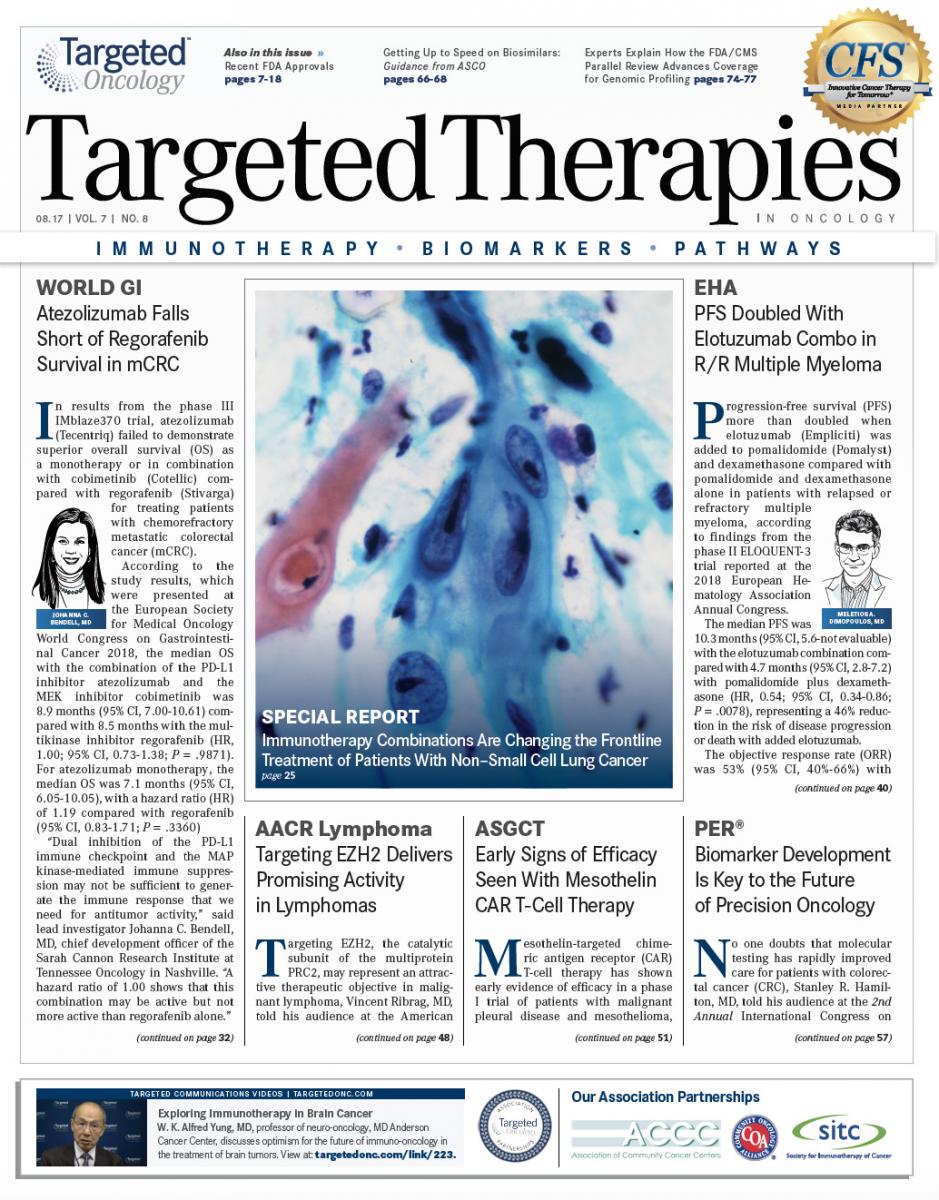Patient Advocacy and the Fight Against Cancer
In this letter from the editor, Targeted Therapies in Oncology Editor-in-Chief, Arjun V. Balar, MD, reflects on patient advocacy and those that support patients with cancer.
Arjun V. Balar, MD
I hope all of our readers are enjoying the summer and getting some well-deserved rest and time with your families. August is often a quiet month for most, with few large scientific conferences or releases of new data, so it is a great time for those in the research field to pause and reflect.
For me, August also means seeing old friends and colleagues at the annual BCAN (Bladder Cancer Advocacy Network; bcan.org) Think Tank. An intimate, 2-day meeting of bladder cancer focused researchers and patient advocates, the event is a unique opportunity to reflect on the impact of our research and treatments on the patients battling this deadly disease and is the perfect forum to meet with like-minded investigators to exchange ideas and develop research collaborations. It is an inspiring meeting that always leaves me reinvigorated about my passion for patient care and bladder cancer research, and it reminds me why we do what we do.
So I decided for this month’s issue to give a shout-out and highlight the impact of patient-driven advocacy in improving cancer care. Patient advocacy groups are absolutely vital. They are critical for helping patients and their families navigate the complexities of cancer care and clinical trials, raising public awarenesssometimes for rare diseases that get little attention―and lobbying for and garnering research support through fundraising efforts, often to further early and hypothesis-generating research that is not otherwise well suited for major grant applications. Advocacy groups are also integral for directing research toward the most critical areas of unmet clinical need and catalyzing research initiatives and collaborations to more rapidly accelerate discoveries. In an often-fragmented research world, with multiple and sometimes competing research interests and objectives, they simply do a great job of getting researchers to work together. We all know that team science ultimately gets the job done, and patient advocacy groups are central in catalyzing and supporting meaningful collaborations that ultimately have the potential to change standards of care. It often starts by simply getting people together in a room to talk, which is why I cherish the BCAN Think Tank as probably the most influential and inspiring meeting of my early research career.
This year’s Think Tank was no different. Not only did I learn a great deal from my colleagues who are working on similar projects to better understand the disease to develop novel therapeutic strategies, but unique this year was the opportunity to engage with regulatory officials from the FDA to understand how we can best engage with them to design better trials to more rapidly accelerate patient access to the most promising new treatments.
Reference:
Advocacy and support groups. National Comprehensive Cancer Network website. nccn.org/patients/advocacy/default.aspx. Accessed August 4, 2018.
This month, I ask all our readers who care for patients with cancer to support patient advocacy groups however and whenever they can, whether that's by providing monetary support, volunteering in outreach or awareness, or simply educating your own patients on how to access the resources that may be available for their diagnosis. Finding groups can be hard and the National Comprehensive Cancer Network website has created a portal where patients and physicians can easily search a comprehensive list of advocacy and support groups for every diagnosis. I encourage all our readers to support the mission of advocacy groups, as they are so vital in our fight against cancer.

Survivorship Care Promotes Evidence-Based Approaches for Quality of Life and Beyond
March 21st 2025Frank J. Penedo, PhD, explains the challenges of survivorship care for patients with cancer and how he implements programs to support patients’ emotional, physical, and practical needs.
Read More